Votre profil Booknode a été créé !
Hidden Pleasures, Tome 1 : Dukes in Disguise
Auteur
- Grace Burrowes (Écrivain)
- Susanna Ives (Écrivain)
- Emily Greenwood (Écrivain)
Achat Neuf
Amazon : Voir les prix Amazon.ca : Voir les prix Fnac : Voir les prix Rakuten : Voir les prixAchat Occasion
Acheter neuf
Acheter d'occasion
Classement en biblio
Thèmes principaux du livre
Hidden Pleasures, Tome 1 : Dukes in Disguise
extrait
His Grace of Lesser Puddlebury by Grace Burrowes :
Over the clip-clop of the coach horses’ hooves and the incessant throbbing of his arse, Coinneach Callum Amadour Ives St. Bellan, ninth Duke of Mowne, endured that form of affection which—among grown men at least—traveled under the sobriquet of teasing.
More honest company would call it making sport of a fellow in a misguided attempt to cheer him up.
“Mowed down, they’ll say, like so much wheat,” Starlingham quipped. “One stray bullet and the great duke is hors de combat.”
Lucere was not to be outdone. “The moon sets, as it were.”
They went off into whoops, endlessly entertained, as always, by a play on the title Mowne, which was an old Scottish term for the lunar satellite… and thus a cognate for a reference to the human fundament.
“If the Sun and Stars had not tarried with a pair of tavern maids, we would have reached the dueling ground sooner,” Con groused. “This whole imbroglio is your fault, you two.”
There was simply no getting comfortable in a coach after being shot in the arse. No getting comfortable anywhere.
“I would be spared my present indignity,” Con went on, “but for the flirtatious excesses of my oldest and dearest friends. Bear in mind, if the wound festers, the pair of you will be consoling my mother on the loss of her darling baby boy, and Freddy will become the next Duke of Mowne.”
Mention of Mama sobered the Duke of Starlingham and the Duke of Lucere faster than a ballroom full of unbetrothed debutantes in the last week of the Season. Faced with such a prospect, the Sun, Moon, and Stars, as Con and his friends were collectively known, would have closed ranks. They’d often stood figuratively shoulder to shoulder, defending their bachelor freedoms against all perils, most especially the artillery fire of the matchmakers.
In the present situation, Con and his friends would have to split up.
“Where did you say we were going?” Lucere asked.
“Outer Perdition,” Starlingham muttered. “We’re in Yorkshire. Nothing civilized goes on in Yorkshire, where the winters are long and the sheep are notoriously friendly.”
“Starlingham, you will take up residence at your hunting box,” Con said, assuming that handy dwelling yet stood. “Lucere, you and your manservant, should you refuse to part with that worthy, will have to bide at a local inn or boarding house. Send word to either me or Starlingham regarding your choice of accommodations. I can stay with my third cousin, Jules St. Bellan.”
Dear old cousin Jules was one of Mama’s many faithful correspondents, though the relationship was so attenuated as to be more nominal than biological. Nominal and fiscal, for Con had been sending a stipend north to Lesser Puddlebury for years.
“Maybe we’re doing this all a bit too brown,” Lucere said. “Your Uncle Leo might never get word of the duel.”
“Maybe you’re still cup-shot,” Starlingham countered, grabbing for the strap dangling above his head as the coach lumbered through a curve. “If Leo learns we’re taking a week’s repairing lease in Greater Goosepuddle, he’ll suspect Freddy got into another scrape, and then Mowne won’t be allowed so much as a spare farthing.”
Freddy, next in line for the Mowne ducal title, was always getting into scrapes, as were Quinton and Hector, and—not to be outdone by her older brothers—Antigone.
Uncle Leo had decided that Freddy must be taken in hand—by Con—or Con would lose control of the family finances, of which Leo was trustee.
“Which of you will marry Antigone if Leo cuts off my funds?” Con asked, for somebody would have to marry her if she was to be kept in reasonable style. Leo’s views of a wardrobe allowance were parsimonious on a good day.
Only two paths circumnavigated Leo’s threatened penny-pinching when it came to the family finances. The first was for Con to turn five-and-thirty, which fate would not befall him for another six years—assuming he could avoid further incidents of bloodshed. The second means of prying Leo’s fingers off the St. Bellan money pots was to marry. If the Deity were merciful, that duty lay at least a decade in the future.
Con shifted on his pillow. The laudanum was wearing off, and the dilemma caused by Freddy’s dueling loomed ever larger.
Back to top ↑ victorian gentleman mid section
“Hearing no volunteers for the honor of marrying my darling sister,” Con said, “we must deceive Uncle Leo in hopes he never learns of Freddy’s latest mis-step. In the alternative, I could take a vow of poverty, which would lead perforce to the cheering vistas of unmitigated chastity and limitless sobriety.”
“It might not be so bad,” Lucere said, an odd comment for a man whom rumor suggested was facing an engagement to a German princess.
“Poverty, chastity, and sobriety?” Starlingham asked.
“No, spending a week in Lower Dingleberry. How many times have these people seen three dukes in the neighborhood at once?”
“They must never see three dukes in the neighborhood at once,” Con retorted. “I shall be Mr. Connor Amadour and swear my cousin to eternal secrecy. He’s a mercenary old soul, and his silence can be bought. You two will not trade on your ducal consequence whatsoever. Be wealthy, be charming, be handsome, but keep your titles to yourselves. The greatest commodity traded up and down the Great North Road is gossip, and three dukes dropping coin and consequence all over some rural bog would reach Leo’s notice by the next full moon, as it were.”
Three young, healthy, single dukes could do nothing without observation and comment by all of society. Freddy enjoyed a little more privacy, but Leo somehow learned of the boy’s every stupid wager and bungled prank nonetheless.
“So… we’re not to be dukes,” Lucere said.
“We’re not to have even a country manor for our accommodations,” Starlingham added.
“But if we can pull this off,” Con said, “I’ll retain control over my portion of the family money, which means nobody need marry Antigone, and I won’t have to call either of you out for landing me in this contretemps. All we’re missing are cold Scottish mornings spent tramping about the grouse moors.”
And the gorgeous scenery, and the fresh air, and a chance to get the stink and noise of London out of a man’s soul.
“Two weeks, then, but we’re also missing good Scottish whisky,” Lucere noted.
“And the Scottish lasses,” Starlingham said, saluting with an imaginary glass.
Con would miss both of those comforts, but in truth, his allowance also paid for Mama’s occasional gambling debt, Antigone’s excesses at the milliner’s, Hector’s charities, Quinton’s experiments, and Freddy’s scrapes.
Con financed it all out of his own allotment, a delicately balanced enterprise that Uncle Leo could easily upset. Leo never interfered with Con’s decisions affecting the ducal finances, but with the personal finances, only Con’s funds stood between his immediate family and utter mortification.
Though what could be more mortifying than getting shot in the arse?
“When you do see the Scottish lasses again,” Lucere said, “you’ll have a fetching scar.”
“Would you like one of your own?” Con drawled. “All you need do is attempt to interrupt Freddy’s next duel, for he’s sure to have another. Stand well clear of the opponents, but position yourself such that Freddy’s bullet bounces just so off a rock and grazes your ducal assets. Along with your fetching scar, you’ll enjoy a significant mess and no little discomfort. I was wearing my favorite riding breeches, for which Freddy will pay.”
“Hurts, does it?” Starlingham asked quietly.
These were Con’s friends. He dared not answer honestly, or they’d pound Freddy to flinders when the poor lad had been trying to delope.
“I did fancy those breeches. Their destruction pains me.” The truth, when Bond Street tailors could beggar a man in a single season.
Lucere passed Con a silver flask. “We’ll drink a toast then, to two weeks of happy ruralizing in Upper Lesser Middle Bog-dingle-shire.”
Con took a swallow of mellow comfort and passed the flask to Starlingham, who did likewise.
“To being a plain mister, and not Your Perishing Grace every moment of the infernal day,” Starlingham said, raising the flask.
Lucere accepted the silver vessel back and studied the unicorn embossed amid the laurel leaves on the side.
“Good-bye to the Sun, Moon, and Stars, and for the next two weeks, here’s to the dukes in disguise.” He tipped up the flask, then tipped it higher, shaking the last drops into his open mouth.
Con’s arse hurt, but to have such friends, well, that made a man’s heart ache a little too. He raised his arm, as they’d been doing since one of them had suffered an adolescent infatuation with the paintings of Jacques-Louis David.
His friends did likewise—the most inane rituals never died—and bumping fists, as one they chanted, “To the dukes in disguise!”
“This is not a tumbledown cottage,” Con muttered as the groom and coachman wrestled his trunks from the boot. “I could swear Her Grace said Cousin Jules resides in a tumbledown cottage, barely more than a shack.”
The dwelling was pretty, in a rural sort of way. Three stories of soft gray fieldstone topped with standing seam tin, the whole flanked with stately oaks and fronted with a wide, covered terrace the width of the house. Red and white roses vined from trellises up onto the terrace roof.
The place gave off a disconcerting air of bucolic welcome, such as a duke in demand by every London hostess ought not to find appealing.
“Will that be all, sir?” John Coachman asked with an exaggerated wink.
“Thank you, yes. I’ll expect to see you again in two weeks, and until then, I expect utmost discretion from you and the grooms. Ut. Most.”
John wasn’t prone to drunkenness, but his groom was young and new to a duke’s service.
“Right, Your Worship. Mind that injury, or Her—your mama will have me out on me arse.”
More winking, and then the coach creaked down the drive, kicking up a plume of dust as Starlingham’s gloved hand fluttered a farewell from the window. Nobody came forth from the cottage to carry in bags, greet the visitor, or otherwise acknowledge company.
“I’m not a stupid man,” Con said, gaze on the bright red front door.
But what did one do without a footman about to knock on the door, pass over a card, and ensure the civilities were observed? How did luggage find its way above stairs before the next rain shower? The knocker was the sort that never came down, but hung permanently by its fittings, so how did one tell if the family was receiving?
Mysteries upon puzzles. How would… Mr. Connor Amadour go on?
Insight struck as thunder rumbled off to the south. This was Yorkshire, and thunder rumbled about a good deal, even when the sun shone brightly.
Also five minutes before a downpour turned the shire to mud.
Con marched—unevenly, given the increasing pain of his wound—up the steps and rapped on the door.
Nothing happened. Why hadn’t Con asked John Coachman and the grooms to pile the luggage under the terrace roof? The roses grew in such profusion as to make the porch cozy. A wide swing hung near one end, a worn rug beneath it, embroidered pillows in each corner of the swing.
Con had recently become an ardent if silent admirer of the comfy pillow.
He banged the knocker again, rather louder than gentility allowed. Perhaps the help was hard of hearing. Perhaps they were all down in the kitchen, scrambling to tuck in their livery because it was half day. Even the legendarily hardworking denizens of Yorkshire would observe the custom of half day.
More thunder, more rapping. Life as Mr. Amadour looked decidedly unappealing. A wind began to tease at the surrounding oaks, while Con’s trunks sat several yards from the foot of the steps, apparently incapable of levitating into the house.
Mr. Amadour was a resourceful fellow, Con decided, and fit, despite his injuries. He fenced, he boxed, he rode great distances in the normal course. He gave a good account of himself on any cricket pitch and was a reputable oarsman.
Apparently, he had latent skills as a porter too, for it took Con a mere fifteen minutes to wrestle three trunks up the steps and pile them beside the door. Even wearing gloves, though, he acquired a scraped knuckle, a set of bruised fingers, and a squashed toe.
And he’d started the wound on his backside to throbbing. He couldn’t very well check to see if it was bleeding again, though he suspected it was. The surgeon had told him to apply pressure directly to the injury to stop any renewed bleeding.
Applying pressure to a bullet wound amounted to self-torture.
Con reconnoitered. He was a duke, a single, wealthy-on-paper, not-bad-looking duke—not that single, wealthy dukes could be bad-looking in the eyes of most. He’d bested matchmakers, debutantes, card sharps, and Uncle Leo. He’d learned the knack of looking pious while napping through a Sunday sermon.
Cousin Jules would come home, for Cousin Jules never traveled to speak of. He was too busy writing to Mama in an endless correspondence of gossip, gratitude for the last bank draft, and importuning for the next one. Perhaps Jules was on a constitutional out among the lovely scenery.
Con determined that he would admire the scenery too, from the comfort of the pillowed swing at the end of the porch. All would remain cozy and dry on the porch despite the fickle weather, Cousin Jules would ramble home, and within the hour, Con would be tucked up before a fire, a glass of brandy in hand. He’d be a welcome, if unexpected, guest whose worst problem would be all the fussing and cooing from the help.
As it should be.
Duchess of Light by Susanna Ives
Chapter One
“Just hang me,” the Duke of Lucere declared. He stood, holding his bag and surveying the teeming metropolis that was Lesser Puddlebury.
The main thoroughfare was no more than a rambling medieval passage. On either side of the narrow lane, crumbling timbered buildings sloped against each other as if for mutual support. The muddy street was empty save for a washerwoman, who was tossing the contents of a chamber pot into the gutter, and an old man in a workman’s tunic, drinking from a flask while herding pigs. He tugged at his hat as he passed and muttered an unintelligible, but happy-sounding, greeting. He had one tooth.
“And a fine morning to you, kind sir,” Lucere answered, tipping his hat in return. He then muttered to Harris, his manservant, “I should have been the one shot in the arse for getting entangled in this low scheme.”
It was the meanest Mowne, Starlingham, and he had befallen, which, given the men’s propensity to locate and bask in trouble, was rather significant.
“That would be most unfortunate,” observed Harris.
Harris had been Lucere’s late father’s manservant and conduit for conversation between the warring father and son. He was a tall man, possessing the powerful build of a pugilist bruiser. Yet his visage was that of a noble Roman with a prominent nose, metallic silver hair that fringed his large head, and grave gray eyes, the type that poets might describe as calm oceans.
Upon meeting Harris for the first hundred or so times, one would think he possessed a great talent for observing the obvious. However, Lucere knew a wise seer with supernatural powers lay beneath the man’s placid façade.
For instance, when, after downing three bottles of fine Portuguese port with Mowne, Starlingham, and several lovely actresses, Starlingham had said, or more accurately, he had slurred, “Let’s ride to Scotland together. Unity in battle,” it had seemed like a completely rational plan given the inebriated circumstances. The words “jolly” and “congenial” had even been bandied about.
When told of this proposed travel party, Harris had said, “It will be a most exciting adventure, I’m sure,” which, if translated onto a lay tongue, had meant, There is a strong possibility you or your friends may be arrested, injured, or shot dead.
And Harris had been right, of course.
Back to top ↑ victorian gentleman mid section
Mowne’s brother had become embroiled in an unsavory duel before they’d even managed to cross the border. And poor Mowne had received a shot in the rump as a reward for trying to stop the unpleasant business.
Now Lucere was worried, nervous, and furious.
Worried that Mowne’s poor wound would fester—it would be a sad affair for a duke in the prime of his life to have his backside amputated.
Nervous that Mowne’s Uncle Leo would receive word of the duel.
And furious at Mowne’s brother, but mostly at himself.
What am I doing here? Hadn’t he made a vow to be a better man?
A year had passed since a footman had found Lucere playing deep in a London gaming hell, a cigar in his mouth, a brandy in one hand, an ace in the other, and a dainty ballerina decorating his knee, to inform him of his father’s imminent death. Lucere had dashed through the yellow fog-filled streets that evening. He hadn’t been to his father’s home since the old duke had told him to stay out of his sight for the remainder of his life.
“So you’re going to be the duke,” his father had rasped when Lucere knelt beside his deathbed. The air reeked of mucus, urine, and medicine. His father sucked for breath and then released it with a gravelly, wet rush. “Well, you’re a disgrace to the ancient Primrose blood line. A stalwart English family that for hundreds of years upheld our motto of duty, honor, truth, sacrifice, and courage. You’re a libertine like The Despicable Uncle, except you can’t be shaken from the tree but remain to blight it. Oh, had your worthy brother lived. Had he ascended to the title. Woe, that he and I—admirable, honorable men—should die and you should be the duke.” He fell into violent coughs that sounded like rocks scraping together.
The duke had been throwing these little knives of words for years at his surviving son. Lucere hadn’t experienced that acute, fresh sting at their utterance as he had in disreputable youth. What had brought the shine of tears to Lucere’s eyes that evening was to see his formidable father shriveled to yellow skin draped loosely over bones, everything in between eaten away. Even though his father would never have believed it, and would have scoffed at such weak sentimentality from a man, Lucere loved the duke. He wished he could have been a better son.
“Take my hand,” his father growled.
Lucere had never held his father’s hand in his life. It was hot and reduced to cords of tendons and hard knuckles.
His father labored for words. “Promise me before the ghosts of the old Dukes of Lucere gathered in this room tonight, coming to bring me to their great fold, that you will be a better man. Worthy of your title.”
Lucere wasn’t one to believe in ghosts, but that night the room felt alive with specters. His voice cracked when he said, “I promise upon the Primrose family name to be a better man.”
“Tell me how you will improve yourself.”
“Now?”
“No, son, in a fortnight. Of course now. What other time is there?”
“I-I suppose I’ll start attending the House of Lords and help bolster several bills I’ve been reading about.”
“No!” his father hissed, which brought more coughs. When he spoke again, his voice was a mere thread. “You will stop keeping company with low women and take a gentle wife of proper breeding and manners. She will bear you a son as soon as may be possible, who, God willing, will inherit her good sense and restore dignity to the title of Duke of Lucere.” His father strained on. “Once the question of the heir is settled, what will you do?”
Lucere began making brash promises to his father. He would improve the tenants’ homes, research farming techniques to increase yields, form charities for the orphans and widows, and so forth. Things the old duke hadn’t done, but it hadn’t been the time to further explore that subject. The duke nodded his head best as he could. Finally, in the very last hours of his father’s life, Lucere had managed to please him.
The old duke released his last breath in the early morning. The new duke had walked to the empty nursery at the top of the house where Catherine, his favorite childhood nurse, and he had shared so many hours. He had squatted onto the cold, bare floor planks and imagined she was with him, embracing him and whispering that all would be well when he knew it wouldn’t be.
Even as a grown man, Lucere desperately missed her abundant smiles and the way she embraced him without reserve—so different from his cold parents, or the grasping courtesans who would later decorate his adult nights. How readily Catherine praised his childish drawings and songs he made up—all created to worship her. No night of wild passion had ever surpassed the gentle, warm feeling of when she had tucked him into bed, singing a lovely song meant to lull him to sleep. He had heard enough false I love you’s dripping from ambitious women’s lips. But Catherine had truly meant it when she’d said, “I love my sweet, sweet boy.”
Catherine was the only person who had ever truly cared for him.
And he had killed her.
After his father’s death, Lucere had tried in vain to find the proper wife in London Society to fulfill the vow he had made, but the Catherine problem had assailed him at every turn. He knew he would never find Catherine again, but that didn’t stop his heart from yearning for her. For years, she had sent him drifting restlessly from one beautiful courtesan’s arms to the next, finding no solace for very long. And now she was determined to prevent his marriage and transformation.
Lucere was a mordant caterpillar stuck in a gloomy chrysalis. In the depths of his marital despair, he had received a fateful letter from Mowne’s interfering and matchmaking Uncle Leo. Leo wrote that a lovely German princess, who Leo and Lucere’s late father had agreed would make an excellent Duchess of Lucere, was attending a hunting party in Scotland. Leo provided a genealogy chart—Leo consulted genealogy charts like fortune-tellers conferred with astrological tables—showing her impeccable pedigree, as well as German articles attesting to her gentle manners and acts of charity. Lucere decided to give up trying to talk sense into his adamant heart—Catherine was dead, he had killed her. Even if he found an incarnation of Catherine, he wouldn’t be worthy of her. He should just surrender to the ease of an arranged, loveless marriage. After all, his friends Mowne and Starlingham were already heading to Scotland, so the entire affair seemed rather destined—the sun, moon, and stars aligning in his favor.
Back to top ↑ victorian gentleman mid section
“The fault, dear Brutus, is not in our stars, but in ourselves,” Lucere now muttered, quoting Shakespeare as he gazed down the narrow lanes of Lesser Puddlebury, seeking an inn that might be devoid of fleas and thieves.
“Harris, do you see that slowly collapsing building with the word ‘Arm’ scribbled upon the side? Do you think it houses people, such as The Royal Arms or Chauncy’s Arms might? Or is it a shop of arms, say, wooden arms? Or perhaps a physician whose specialty is the arm?”
“It is a captivating mystery, Your Grace,” said Harris in his unperturbed tones. “However, might I suggest the Duke of Lucere’s Boarding House as your temporary home?”
“Are you attempting a joke? Because I don’t feel in the mood to laugh, but would rather kick something very hard, namely myself.”
“No, Your Grace. If you will kindly position your sights farther down the lane, you will see a sign advertising the Duke of Lucere’s Boarding House.”
Lucere turned, located said sign, and studied it with his head tilted, a brow cocked. The wood—embellished with vines and primroses, no doubt after his family name Primrose—did, indeed, read “Duke of Lucere’s Boarding House.” Below that, a line further expounded, “Apartments for Elegant Persons of Gentle Breeding.”
What?
Intrigued by this mystery, Lucere strolled down the uneven pavement until it ended in a dirt path. Set slightly apart from the town was a crumbling manor house. It was a dreary gray stone edifice from Jacobean times. The left side of the building was higher than the right, and ugly cracks ran in slants from the roof to the foundation. The grounds, which twenty years before might have been a pleasing, manicured garden, appeared to run feral.
“Well, that’s convenient,” Lucere said, at length. “Exceedingly odd and rather puzzling, but terribly convenient. Ah, Harris, but do we possess the required gentle breeding demanded by this exacting Duke of Lucere? Starlingham said something about being in disguise—or did he say be disguised?”
“I do believe he was suggesting assuming false identities, not being inebriated for the duration of our time in Lesser Puddlebury.”
“I could be both, for good measure. For I can hardly stomach this place sober. Very well, who is genteel and poor? We haven’t regimentals or clergyman’s clothes. Good God, no one would believe I was a man of the cloth for a moment—an aura of sin surrounds me.”
“Perhaps we could be tutors in want of employment.”
“You shock me with your fast, devious mind, Harris. Tutors we are. I shall resurrect dead and tedious languages, and no doubt, you shall want to teach philosophy, given your great esteem for Kant.”
“If it pleases Your Grace.”
“No, it does not please,” Lucere said, gazing at the dilapidated lodging house. The dying domicile with his name on its sign seemed like a sad metaphor for his life. As if to further illustrate the point, a slate slid from the roof and thudded on the ground. “Nothing pleases, and that is entirely the problem. Since my father’s death and that bloody vow, my life has become gray. London is gray, this village is gray, and everything I touch, hear, or see is as dull, relentless, and despondently gray as this sad home. And I can’t chase away this feeling, no matter how much I try. I feel so doomed and trapped by life.”
Harris studied his master, his heavy brows raised in alarm. Lucere felt embarrassed by his outburst.
“Damn it,” Lucere muttered, feeling foolish and exposed in Harris’s penetrating gaze. “Forget I spoke. I’m just frustrated that I agreed to this sad folly.” He slid his identifying signet ring into his bag, which also carried Leo’s letters and charts as well as a diamond ring and necklace Lucere would give his princess should he decide to ask for her hand in marriage. “I hope this Lucere cove has chambers for us. I hear tell he is a blackhearted rogue who would be well served with a good shot in the arse.”
“You may find, Your Grace, that good things are often born of unfortunate circumstances.”
“I assure you the only good thing that will come of this unfortunate circumstance will be that for the rest of my life, no matter what evil befalls me, I can always say, ‘At least, I’m not in Lesser Puddlepiss.’”
Chapter Two
Estella pondered why, at least in her case, bad news never meted itself, for example, dropping a tidbit of badness on a Monday and a little more on a Thursday. But alas, vile tidings must all fall at once. For the past few days, she had prayed for a positive reply from the Duke of Lucere before she met next with the despised banker. Out of financial desperation, she had recently tried to strike up a correspondence with the great duke, or to be more accurate, with the great duke’s secretary, Mr. Fellows. Naturally, a cold letter from Mr. Fellows, denying her requests for help, and a call from the banker, Mr. Todd, occurred within the same hour.
Now the franked letter lay folded before her on the parlor table beside twenty pounds and three shillings in stacked coins—all the money she possessed. She sat on a chair, her hands clutched in her lap, her eyes focused on the stained and snagged carpet as she struggled to remain civil.
Mr. Todd tossed back his head in belly-shaking laughter, then lowered it again and studied her. The side of his thin lips rose in a boyish smile. A twinkle warmed his gray eyes that were mantled by heavy lids. She did not know whether to describe him as stout or powerfully built. He was a man of dualities. At this moment, he resembled a lovable, chubby puppy. This puppy side was the one most people saw.
But Estella wasn’t fooled.
She had witnessed his visage harden to frightening menace in a flash.
“You are a lovely little darling.” He leaned down until they were at eye level. “But let me help you perform a little mathematics problem.” He spoke slowly, as if to a child. “You owe 3,120 pounds at four percent. Do you know what that equals per month including last month’s missed payment?”
“I only owe you 3,112 pounds,” she said. “Here is the correct amount for two monthly installments. I keep careful ledgers.”
“Of course you do.” He leaned in closer, his eyes mere inches from hers. “But, my dearest, you owed the butcher, the coal deliverer, and the apothecary for your mother’s medicine. You can’t leave your house without incurring more debt, can you, my silly darling?” He laughed again. “What would happen if you weren’t so beautiful? If I weren’t so willing to help you? My dear, you live entirely on my graces.” He placed his large, hot hand on her cheek. “Now I would appreciate a little gratitude.”
“You did not ask my permission to pay those creditors.” She gently removed his fingers. She knew better than to anger him. “You are intentionally making me further obliged to you.”
“Obliged?!” he cried. “Y-you’re like a bird with a broken wing trying to fly. It’s pathetic to watch you.” He stepped back and swung his arm, gesturing to the room. “You can’t run this house. It’s falling down around you. You have no sense of economy. You’re not intelligent enough to take care of yourself, let alone your sisters and a sick mother. Only I have the patience to put up with you—no one else—and yet, you give me no consequence. No respect.”
Estella tried to keep his ugly words from sinking into her heart and further weakening her. That was his intention. Every week, he called to try to break her down.
“I’m the only man standing up for your honor,” he continued when he didn’t garner a reaction. He brushed his chin with his hand; it made a rasping sound. “What do you think the villagers think when they see a young woman running a lodging house? That you’re entertaining the royal princesses? You, my dear, have made yourself the object of lurid gossip. Decency forbids me to say how the gentlemen in this town regard you.”
What an insidious man! He was guilty of spreading the very rumors about her that he claimed to dispel. She wouldn’t put him above suspicion in the mysterious events surrounding her chicken coop being left open overnight and all the chickens eaten by dogs, or the sudden, fatal illness of their milch cow.
Estella glanced at the letter. “I will write the Duke of Lucere again. I will scratch up the extra monies.” She would beg the duke. She would sign her name in blood.
He slammed his palm hard on the table, rattling the coins and the tin candlestick holder. “Enough with this inane Duke of Lucere foolishness! Enough, I tell you, woman! You could drive a tolerant man to madness.”
She came to her feet. “We are Primroses!” She kept her bearing high. “The duke is my cousin through my grandfather, Lord Maxim.”
He cocked his head and raked his gaze over her body, stopping at her breasts. She gathered her arms about her bosom, trying to conceal herself from his eyes.
“Would you care to know who my cousin is?” he asked, and didn’t wait for her answer. “Lord Nelson. That’s right.” He slowly approached her. She backed up until she hit the bureau desk, shaking the glass cabinets. Still he came even closer to her. He kept his legs spread, his face so close she could feel his breath on her cheek. “My mother claims he’s a fourth cousin. I’ve never met him. Therefore, I don’t call my bank Lord Nelson’s Bank, because I don’t shamelessly live off the name of another. I rise and fall by my own merit.”
She didn’t mention that the lodging house had been her mother’s idea before she’d had the heart spasm. Her mother had taken out the mortgage and named the business after the great duke. Now Estella shielded her mother and twin sisters from Mr. Todd and the desperation of their situation. Around her family, she upheld the pretense that their world was running merrily along. But inside, Estella was breaking under the weight of Mr. Todd’s bombardment of her character and her business.
“You mock me and then wonder why I don’t want to marry you,” she whispered in an unsteady voice.
He studied her, slowly shaking his head. “My dear, I only become angry with you like a patient father to his child. Why must you reject my help for your own good? You willfully and incorrectly cast me as a villain, refusing to let any affection grow in your heart.” He cupped her chin, raising her head. “Come, let me love you. There now, see how nice you are when you’re docile?” She watched him close his eyes, his open mouth descending onto hers.
She shrank away from his touch, escaping to the corner by the sofa. She wrapped her arms about her. “I-I can have the remaining monies to you in a fortnight.”
He raked his hand through his hair and began to pace, his chest rising and falling with his rapid breath. Estella’s belly tightened with dread. In a sudden motion, he slammed his fist into the sofa cushion. And then again and again.
“Mr. Todd!”
He pointed his finger at her, his nostrils quivering. “You cannot keep your home. You cannot tend to your sisters and mother. You purchase her medicine on credit. What kind of daughter are you? Selfish and unthinking, that’s what. You’re living in some dream world. As though this were a bloody dollhouse and you’re the Duchess of Lucere.”
Was she truly living in some dollhouse dream world? It didn’t seem like much of a dream, more the stuff of nightmares.
He snatched up his hat. “I’m taking Mama to York to visit her sister for two weeks. I shall buy her gowns of silk and sarsenet while I’m there. That’s how I treat proper ladies. I could have treated you that way.”
Estella bit back a nasty retort about treating ladies to silken threats and sarsenet-draped coercion. When she said nothing, he stalked to the table, scooped up her coins, and strode out the door. But a few moments later, he was back. “You will take my hand, Estella,” he hissed. “You will learn to love me.” He walked out again, this time with a muttered curse.
Estella pressed her hands to her face. Her heart thundered. She waited a moment more until she heard the thud of the front door and then fled to the kitchens.
She felt as though the failure of their lodging house was her own doing. Somehow, she should have done something different, something better. As much as she tried to ignore Mr. Todd’s cruel words, some echoed her own fears. She couldn’t take care of her mother; she couldn’t raise her lovely sisters to the genteel lives they should have. It was her fault.
Back to top ↑ victorian gentleman mid section
Don’t cry, she told herself as tears blurred her eyes. Don’t you dare cry. Not if you care for your family.
She poured a fortifying cup of pure black tea—such luxuries as milk and sugar were saved for paying lodgers—and sat at her writing desk. She had lugged it to the kitchens so she could take care of correspondences while watching whatever was simmering on the range, as well as enjoy the warmth radiating from the coals. Without the necessary funds to resupply the coal, she had rationed the precious black gold to the kitchens and her mother’s room when they didn’t have lodgers. And they hadn’t had any for a month.
She unfolded the letter from the duke’s secretary and reread it, looking for some ray of hope she might have missed upon the first perusal. He had written that His Grace thanked her for her gracious letter and for the felicitations for his happiness. Unfortunately, she could claim no ties to the great family, and thus the duke was under no obligation to offer her any assistance.
“How can you say that?” she cried. “I have repeatedly detailed how we are related through my grandfather.”
Mr. Fellows closed by saying that the duke wished she and her family—although entirely unrelated to His Grace—health and happiness.
Happiness? She wasn’t sure she knew what that word meant anymore. Now when she thought of happiness she remembered being a child, holding her grandfather’s hand as she and the toddling twins walked through the forest paths. He would make up wondrous stories about fairies living amid the ferns. How lovely their lives had been then, filled with affection and security. Now she met every morning with fear.
She studied the secretary’s missive. Had the Duke of Lucere even seen her words? She sighed, turned the letter, and began to write in very small lines across Mr. Fellows’s neat scrawl. The words she kept safe from her mother and sisters now burst onto the page.
Dear Duke,
Thank you for your last letter composed by your secretary. Please thank him for inquiring after the family. I do not understand why Mr. Fellows insists that you and I are not related. I have more than once established the connection through my beloved grandfather, Lord Maxim, your great-uncle. Your Grace and I are second cousins. To this end, I beg your assistance of a mere ten pounds to meet some of my creditors. Upon my honor as a Primrose, I shall recompense every borrowed pound and with a generous three percent interest. My mother is an infirmed widow; she suffers greatly from weakening ailments. I am trying to raise my twin sisters as genteel ladies worthy of the Primrose family motto—duty, honor, truth, sacrifice, and courage. Words I have endeavored to live my life by.
As we are family, I shall open my entire situation to you. Unless I receive kind assistance soon, I shall have no other course than to make an undesired alliance with a powerful man of a harsh, brutish nature. This gentleman has used his influence to vilify my character and chase away more worthy suitors.
I beg that Mr. Fellows will pass along my letter to Your Grace’s hand. I am most desperate in my plea.
Yours sincerely,
Estella signed her name to this outpouring and hurried to open the door for Lottie, who was dragging a copper kettle into the kitchens for the laundry. Dear Lottie was the only remaining servant. She was a sturdy woman of thirty-five years, but her mind remained that of a child.
Estella addressed and sealed her letter, and then gave Lottie explicit instructions to mail it and ask for a receipt.
“Yes, miss,” the servant replied, happy to be tasked with the important chore. Before Lottie could leave, she had to hug Estella. “I love you, miss. I do. You are my favorite person in the whole world.”
“I love you too,” Estella assured her.
This pleased Lottie, and she skipped off, a huge grin lifting her face.
Estella had begun to make her way to her mother’s room when the bell for the front door rang.
She panicked. The only people who called lately were Mr. Todd and creditors.
But what if it was an actual customer?
She dashed into the breakfast room where her sixteen-year-old twin sisters, Cecelia and Amelia, were supposedly doing their geography studies. Instead, she found them giggling and trimming each other’s gowns with garish cloth flowers cut from old, unusable drapes. The book on the customs and landscapes of the Orient, which she had begged to borrow from the circulation library, lay unopened on the table beside a sliced beet and a jar of something resembling black clay. The girls stopped giggling, as though Estella were some warden, and shoved the vegetable and jar under the cut-up drapes.
“What are you doing?” Estella cried, staring at their garments. “You are ruining your gowns!”
“We are not!” Amelia protested. “We are making them fashionable.”
“That’s not fashionable! That’s… that’s… garish! Hideous! Appalling!”
She desperately desired to treat her sisters to a smart scolding. After all, she scrubbed, cleaned, cooked, and mended so that they could be raised as proper ladies and make good establishments, escaping the prison in which Estella found herself. But she had more pressing matters to attend.
Back to top ↑ victorian gentleman mid section
“Answer the door,” she begged the twins. “If it’s a creditor tell… tell him that I’m out. And then remove those repulsive flowers from your gown. And I don’t want to see them put on a bonnet either.”
What a terrible example I’m setting for my sisters, Estella thought as she stationed herself behind the stairs to listen. An antithesis to the Primrose motto. But if a creditor was calling to demand payment, she had no funds left. Mr. Todd had taken them all.
Chapter Three
“It is entirely possible this structure may collapse on our heads during our stay,” Lucere observed to Harris, now that he could assess how badly the foundation of the Duke of Lucere’s Boarding House had shifted. “His Grace requires a better steward.” If the outside was so atrocious, he could only imagine the inside of crumbling walls, falling ceilings, and frightening inhabitants—both human and rodent.
Then the door opened, and two stunning blonde twins gazed at the men with lovely, wintry blue eyes fringed with unnaturally dark lashes. Their full lips were beet red and complemented their garish gowns, which appeared to be in bloom for the season.
Lucere was rarely at a loss for words, but his jaw flapped open. Harris was rather discommoded, as well.
The ladies gave no greeting, but looked at each other and then broke into a prolonged fit of giggles.
Seeing no introduction from them in the near future, Lucere stepped up to the task. “Good day, my lovely ladies, I’m Mr. Stephens,” he said, converting his first name to a last. “And this is my good friend Mr. Harris. We are seeking an interview with the Duke of Lucere regarding letting rooms in his esteemed boarding house.”
The twins blushed and giggled with greater violence.
One of the girls rolled her eyes. “The Duke of Lucere doesn’t live here,” she said in a voice that intoned that Lucere, the real Lucere, could possibly be the stupidest man alive.
“Does he not?” Lucere feigned surprised. He was falling into his normal pattern of resorting to mordant humor to hide his disdain. Nothing set him off a lady faster than insipid giggles and eye-rolling. “Then why, my fair ladies, does he advertise his name on the sign? My companion and I are quite disappointed not to meet the man in full. Alas, we shall take our business elsewhere.”
“The Duke of Lucere is our beloved second cousin,” a soft soprano said. The twins parted, revealing the most ravishing female Lucere had ever beheld.
And Lucere had beheld many females.
She had all the fair coloring of the twins, but her eyes were larger and paler, her chin more delicate, her cheeks more majestic, her lips less red. A living, breathing angel, until he took in her figure. No celestial being of goodness could possess such luscious, sin-enticing breasts, further enhanced by a slim waist. And she clearly knew the allure of her body, for she wore a blue cotton gown that appeared several inches too small for how it strained across her abundant breasts. She curtseyed with the grace of a ballet dancer, giving him a good eyeful of that delicious bosom.
All Lucere could think was, For the love of all that’s right and just in the world, please don’t giggle.
Followed by, Precisely what kind of boarding house is this?
Had he stumbled into the Duke of Lucere’s bordello? He didn’t know whether to be intrigued or furious. For the moment, he would try intrigued.
“Please, do come in,” the woman said.
She beckoned the men with a graceful wave of her hand to follow her to a shabby parlor. The cream paint was faded, the ceiling plaster cracked, the brass fixtures tarnished, the burgundy upholstery suspiciously hidden behind blankets and pillows. He took in all these details at once because the beautiful goddess so vividly contrasted with her surroundings.
She curtseyed again. “I’m Miss Estella Primrose, and these are my sisters, Miss Cecelia and Miss Amelia.” She gave her giggling sisters a meaningful look. “Please properly curtsy for our gentleman guests.”
Ah, so they were Primroses! That explained why they were trying to pass themselves off as relations to the duke.
“It’s lovely to make your acquaintance,” Lucere said coolly. “I’m Mr. Stephens, and this is my friend Mr. Harris. We are in want of…” He paused, uncertain. Did he say he was in want of a room or a companion?
Harris finished what Lucere had started. “We are tutors in want of agreeable apartments.”
“Very good.” Miss Primrose smiled. Lucere swallowed. Those delicious upturned lips and white teeth wielded a scary power. They sent a hot wave over his skin and into his blood, sending it rushing to his sex.
“Won’t you please sit down?” she said and then turned to her sisters. “Bring our kind guests tea.”
Back to top ↑ victorian gentleman mid section
“With milk and sugar?” one asked.
“Of course with milk and sugar,” Miss Primrose replied, a taint of exasperation beneath her soft tones. Once the twins had trailed out, Miss Primrose took the wing chair opposite the men. She kept her back ramrod straight, her hands clasped in her lap. The sunlight streaming from the window created a Madonna-like halo around her pale, fine hair.
“So, you have recently arrived in Lesser Puddlebury?” She fixed her bright gaze on Harris.
Despite the fact that Lucere had made a vow to his dying father to avoid low women such as Miss Primrose, and that he should be on his way to Scotland to meet his future wife of saintly reputation, he was annoyed that Miss Primrose didn’t look at him.
“Yes, miss,” Harris replied. “Our former pupils have reached their age. We were given a handsome recompense for our years of service, but we are currently in want of work. We have excellent letters from our prior services and seek a place to stay while corresponding with potential employers.” Truly, the man was a dead-face magician.
Her smile widened, its power increasing exponentially. This woman was clearly skilled at her arts.
“How fortunate for you that two apartments have recently come available,” she said.
“You must run a very popular boarding house, Miss Primrose,” Lucere replied, pointing out the suggestive anomaly of a “miss” running such an establishment. He was happy to note that he was coming back to his usual cynical nature after the initial shock of her beauty.
He smirked inwardly as she shifted in her chair.
“My mother is the proprietor,” she answered.
Of course, he refrained from saying. Such establishments were often family businesses.
“And many of our genteel guests are away at house parties and such for the summer, so we are rather dull for the moment.”
What a honey-tongued, scheming little angel. No one of any elegance or high breeding would step foot in this hovel unless for lurid purposes.
She lifted her eyes to Harris and graced him with another devastating smile. Perhaps she thought him more gullible to her charms than Lucere. “Therefore, I’m grateful to have such conversant and learned company to enliven our evenings.”
“And you chose not to journey to London to be with your cousin, the duke?” Lucere asked. “Most young ladies in your position revel in the delights of the Town.” He enjoyed watching a blush creep across her cheeks.
Harris cleared his throat, a subtle warning that Lucere chose to ignore.
She shifted again and averted her beautiful eyes from Lucere’s face. “My mother prefers not to travel.”
“How extraordinary that you are cousins with the duke,” he continued, enjoying her obvious discomfort. “As a humble tutor who must rely on the kindness of great men for his living, I’m keenly interested in learning as much as I can about elegant society. Might I kindly ask you what you know of this man?”
A little pleat appeared between her brows. “I find him to be a…” She studied the faded carpet. Her voice turned quiet and wistful. “A kind man of gentle nature. He listens with patience and compassion to others and always responds generously to those in need.”
It took a great deal of restraint to keep Lucere from breaking into laughter. Someone should hint to the poor miss that she should read a London scandal rag or two before uttering such obvious fibs. Good heavens, he must remember this description and retell it to Mowne and Starlingham. “Ah, you correspond with the duke frequently,” he said, feeding her more rope to hang herself.
“We correspond every week,” she readily lied, keeping her eyes on the carpet. This was doing it too brown. He had never received a letter from an Estella Primrose in his life.
“And what of his sisters?” Lucere continued. “Or his mother?”
She squirmed. “The duchess is as kind and generous as her son.”
At that point, Lucere couldn’t contain a derisive bark of laughter. “How extraordinary! You have met her?” For if she had, Miss Primrose would know that his mother put the haughty Almack’s patronesses to shame.
“A f-few times,” Miss Primrose stammered. “As I said, my mother prefers not to travel.”
Back to top ↑ victorian gentleman mid section
Lucere templed his fingers beneath his chin. He felt his lips curl in a predatory smile. Why had he thought he wouldn’t enjoy Lesser Puddlebury? “So it is the duke and you who share the intimate relationship.”
Her head jerked back, and she blinked. “Pardon me?”
“What are your rates, Miss Primrose?” Harris broke in.
Estella didn’t answer but stared at Lucere, her mouth dropped, her brows tensed. Harris repeated his question, this time in more gentle tones.
“Five shillings a week,” she replied to Mr. Harris in a flustered voice. “W-would that suit you?”
Five shillings for a room and beautiful companionship was a trifle in London.
At this point, the twins returned with the tea. After setting the tray upon the table, they shamelessly ogled Lucere and quietly giggled to each other.
Miss Primrose made a show of elegantly pouring their tea. It was comical watching her feign airs amid the chipped china. How she must make her customers feel important, as if they were genteel men on par with the duke himself. How she must entice them with her smiles and gentle eyes. Lucere knew how these ladies operated. Contrary to opinion, their work was less about the actual act and more about making a lonely gentleman feel loved and desired.
But Lucere was stuck with a quandary. An honorable man would stalk from this den of dissipation and write immediately to his solicitor. Although there was no law against someone using another’s name for advertisement, Lucere would think of some rule to toss at her. But that didn’t give him a place to stay while Mowne healed his arse.
And every fiber of Lucere’s being desired this delightful, scheming morsel. But, good God, he was on his way to Scotland to meet his bride and begin his transformation. Was it ungentlemanly to be in lust with another woman just days before his engagement? Didn’t he vow to be a better man?
She passed his tea, giving him another potent smile. That smile coupled with the sunlight streaming through the window and sparkling in her pale eyes was a lethal combination to a man’s virtue. A hot current rushed through Lucere’s mind, silencing his thoughts, leaving only throbbing desire.
The decision was made not by his rational brain, but a part of his body located between his legs. He set his teacup upon its cracked saucer and said in a low voice, “Won’t you show me to my bedchamber?”
Kiss Me, Your Grace by Emily Greenwood
Faced with an unacceptable marriage prospect chosen by her parents, Claire Beckett has sought sanctuary in the country, where her friend Louisa keeps house at an obscure property owned by the Duke of Starlingham… whoever he is.
By the time Claire and Louisa had finished their wine—there was a modest amount left in the bottle, which Louisa insisted they finish lest it be wasted—Claire felt more relaxed than she had in days.
Their companionable quiet was shattered, however, by an entirely unexpected and, considering the circumstances, unwanted sound.
“Heavens! Was that a knock at the front door?” Claire asked, sitting forward.
Louisa cocked her head, listening—and there it was again, a definite knocking. “A foreign sound at Foxtail, to be sure,” Louisa said. “Aside from you, no one’s come to the door at night in the two years since I arrived.” She stood up and, taking the candelabrum, started for the door.
“I’ll come with you,” Claire said, reaching for the fireplace poker. “Grainger’s surely retired to his little gardener’s cottage with his wine, so we have no one to protect us.”
The knocking, which had paused briefly, started again as they reached the door, heavy and bold, like a highwayman shouting his demands at terrified travelers. Clearly, Clare read too many gothic novels, nonetheless steadying her grip on the poker.
Louisa opened the door. The light from the candelabrum illuminated only an expanse of dark coat until Louisa raised the candles much higher to reveal a man’s face.
Claire’s first impression was of a square jaw, then of a mouth set in a firm line. Her gaze crept upward, taking in features made with bold strokes. In the shadowy light, his eyes were black, but she had a feeling they’d look that way in the daytime, too. His hair was dark and longish, its spiky waves brushing the collar of his dark coat and slashing across his forehead.
He was moderately tall and rather hulking. His shoulders were unfashionably brawny, and his expensive-looking tailcoat must have needed an entire bolt of fabric. And what kind of gentleman had arm muscles that showed under his coat? This man might be a gentleman—and there was little doubt of that from the cut of his clothes—but the bold jut of his chin and the leashed strength of his body spoke not of drawing rooms and dance floors but sweat and force.
He would not have looked out of place swinging a hammer in a blacksmith’s forge, and Claire imagined fire reflected in those intense black orbs while sweat trickled down the rough angles of his cheeks…the Roman god Vulcan at his work.
She needed to stop reading those mythology books as well.
“Good evening,” the man said in deep, cultured tones. “I am Mr. Fitzwilliam, cousin to his grace, the Duke of Starlingham.”
Claire and Louisa gasped at the same time.
Rowan MacKenzie Fitzwilliam, eighth Duke of Starlingham, barely restrained himself from rolling his eyes at the response of the two women to his arrival. He knew quite well that he could look like a brute, and truth be told he liked that his appearance and his gruff, aloof manners kept most people at bay. But he wanted a hot bath and a meal in short order.
“Might I come in?” he asked when neither of the women spoke. Because of the position of the candelabrum one of them was holding, he couldn’t see their eyes, though he supposed from their gasping that they were filled with trepidation.
“Of course,” said the one holding the candelabrum in a steady voice, and both women stepped back to let him in. “I am Mrs. Firth, housekeeper here,” she continued. “Forgive me, but I had not expected visitors this evening.”
In the better light of the corridor, he could see that his housekeeper was a handsome brunette, and tall for a woman. She was wearing a tidy, sober frock and looked exactly as a housekeeper ought, if rather young.
“I’ve just arrived in the area,” he said, “and I require lodging for the night– and, in fact, for the next two weeks. My cousin the duke assured me I would be welcome to stay here, and indeed,” he said, “Starlingham has asked me to inspect the property with an eye toward any needed improvements. I trust my arrival is not an inconvenience for the staff.”
In truth, Rowan did not expect to do improvements but to have a look around before he approved the sale of the property, though he didn’t intend his staff to know of this yet. But his business manager, Forsyth, had been insisting for quite some time that Foxtail was nothing but a drain on the ducal finances, since no one in the family used it, and that it ought to be sold as soon as possible and the money used for repairs needed at the ducal seat. Forsyth even had an eager buyer already.
“Your arrival, while unexpected, is no inconvenience,” the housekeeper said. Despite that initial gasp, she did not seem cowed by him, and he liked her the better for it. He abhorred obsequious or fearful servants, and found his gruff manner to be an effective way to weed out unsuitable people. “We keep all the rooms ready, should his grace or any of the family arrive.”
As, of course, the staff had been doing, pointlessly, for years. Rowan didn’t want to think of the sum such daily preparing of unused rooms had amounted to.
His gaze traveled to the other woman, a blond wearing a rose-colored gown. She was holding a fireplace poker at her side, apparently having armed herself against the possibility of an intruder at the door. He repressed the smile that teased the edge of his mouth at the idea of this slip of a woman taking him on.
Who was she? Her gown was far too fine to be that of a servant, never mind the fetching style of her hair and the soft beauty of her features.
And then their eyes met, and the oddest thing happened: an electric shiver of what felt like recognition went through him. There was something about her, something familiar, even though he was certain they’d never met before. No…it was more as if he already knew and understood her on some inexpressible level.
Ridiculous.
He focused his attention on the housekeeper. “I took the liberty of bringing my horse to the stable,” he said by way of explaining his solitary arrival. “My manservant was detained by a matter of some urgency, thus I am alone.” He lifted his large valise a bit. “And I have just the one bag, as I prefer to travel unencumbered.”
He could have sworn his words brought the light of suspicion to the blonde’s eyes.
“And who are you?” he demanded of her.
“I’m sorry,” she said, bizarrely. And then shifted abruptly, as though Mrs. Firth had knocked into her
“Pardon?” he said.
She seemed to draw herself up. “I mean,” she said firmly, “I am Miss Beckett, also cousin to his grace the Duke of Starlingham, and a guest here. I’m sorry if you’re surprised to find Foxtail already occupied.”
What was this?
Afficher en entierAnnonce publicitaire
Date de sortie
Hidden Pleasures, Tome 1 : Dukes in Disguise
- USA : 2016-03-11 (English)


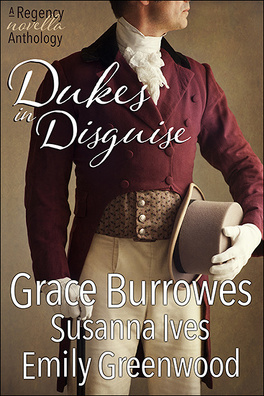






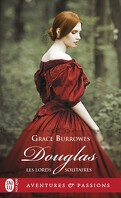










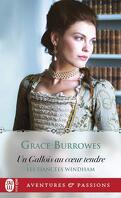





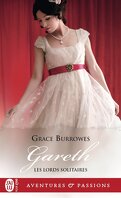
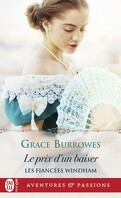

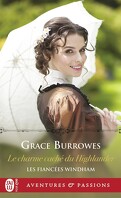
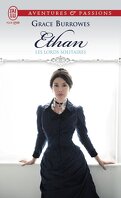

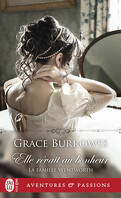


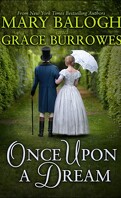




























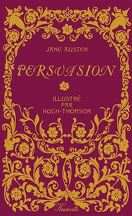






Résumé
Dukes in Disguise a Regency novella anthology
Grace Burrowes, Emily Greenwood, and Susanna Ives team up to bring you three Regency novellas, each featuring a young, wealthy duke who must spend two weeks masquerading as a commoner in the bucolic backwater of Lesser Puddlebury. Disaster will rain down if their graces’ titled status become public knowledge. Fortunately for our heroes, true love is no respecter of rank.
His Grace of Lesser Puddlebury by Grace Burrowes
Connor, Duke of Mowne, has been injured in a most delicate location, and needs a place to heal far from the eyes of Polite Society. When he takes refuge with the independent and impecunious Julianna St. Bellan, he suspects his wound was in truth caused by Cupid’s arrow!
Duchess of Light by Susanna Ives
In a tangle of lies and disguises, a brokenhearted duke and a desperate miss find truth in love.
Kiss Me, Your Grace by Emily Greenwood
Rowan, Duke of Starlingham, thinks love is for fools, though when he arrives at his hunting box to find an alluring but puzzlingly uncooperative woman pretending to be his cousin, he realizes he may be a victim of the most absurd malady of all: love at first sight.
Afficher en entier